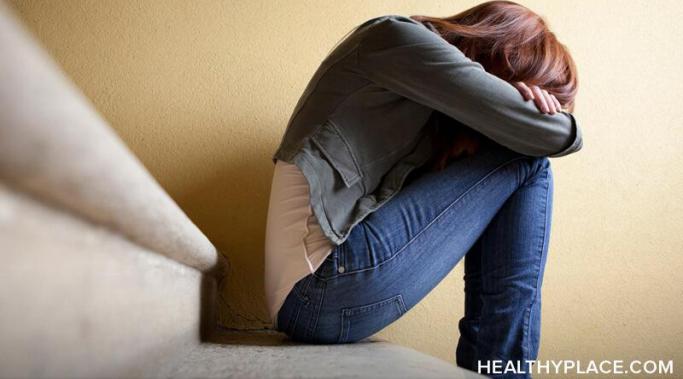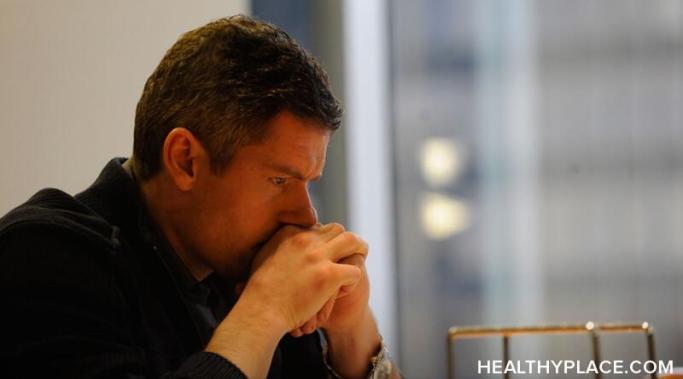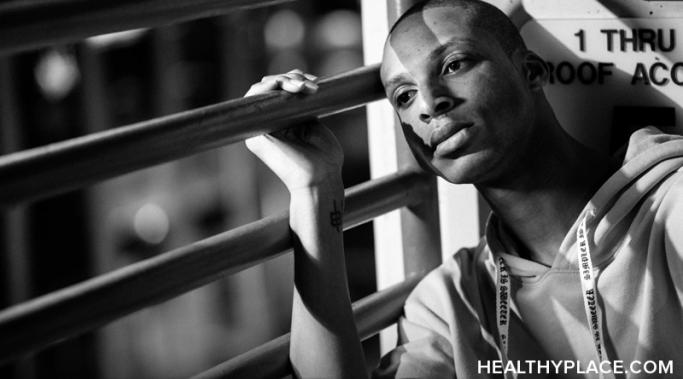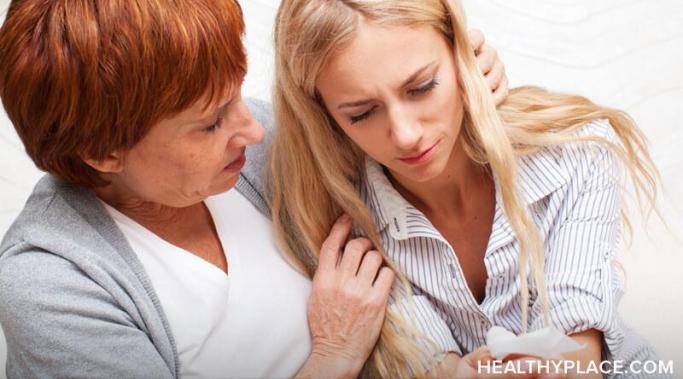I’ve lived with not wanting to live since before I was a teenager, but my suicidal thoughts have been quiet lately. It’s odd not to have that little voice in the back of my head jumping at every opportunity to tell me how the world would be better off without me. But what does it mean, if anything? Does it mean I’m recovered, and my suicidal thoughts aren’t going to come back? (Note: This post contains a trigger warning.)
Suicide - Recovering from Mental Illness
A few nights ago, I used a crisis text line for the first time. I had no idea what to expect; I just knew I was in too dark of a place to really manage it on my own anymore. So I reached out, and I'm really glad I did. (Note: This post has a trigger warning.)
In general, suicidal thoughts are not normal, but they have been for me lately. I have been actively working toward my recovery for over six years now, and yet for the last two months, I've experienced some kind of suicidal thought nearly every day. I don't want to die, I just want to hit "rock bottom" so I can finally actually get better. (Note: This post contains a trigger warning.)
September is Suicide Awareness Month, and in honor of that, I want to share my experience with feeling semi-suicidal. My hope is that other people who have occupied this awful in-between space will understand that what they're going through is very real, and someone else has been there too. (Note: This post contains a trigger warning.)
As a mental health worker, I am always concerned about how first responders treat mental health concerns and crises. Two such duties are safety checks and dealing with suicide attempts. (Safety checks are when law enforcement checks on someone who has been reported in danger or will possibly harm himself or others.) Here in Toledo, suicide attempts are taken very seriously by emergency services. However, safety checks are of low priority. (Note: This post contains a trigger warning.)
My husband and I are standing in the kitchen of our new house, picking out paint colors and deciding which projects to tackle first, when suddenly I think "It doesn't matter, I won't be there to enjoy it. I'm going to end up killing myself eventually." I don't mean to think this. I don't want to think this. Luckily, I've had experience with these intrusive suicidal thoughts before, and I'm able to stay calm. I know that I don't want to die, I'm just experiencing a lot of change and my brain is seeking out the comfort of its old neural pathways.
Knowing how to give mental health first aid for suicide prevention is important for everyone, but we often don't know how to do it. After graduating from a community college in 2014, I accepted a position as a peer support specialist at a local mental health agency. Prior to this job, I worked at a group home, and the training was very similar -- first aid, CPR, and nonviolent crisis intervention. However, my new position also required Mental Health First Aid, a formal eight-hour course on how to respond to someone in crisis. The Mental Health First Aid intervention can be crucial in suicide prevention and getting someone the appropriate help they need.
There are many reasons people die by suicide when living with mental illness, but I'm going to focus on three. Suicide is an all-too-common outcome of mental illness, and most suicides have untreated mental illness as a factor. But what drives a person to the edge? What overrides the instinct for self-preservation and causes a person to end it all? I've attempted suicide, and these three reasons people die by suicide hit closest to home for me.
There are three advantages to mental health crisis text lines. Recently, a mental health consumer organization in the greater Indianapolis area started a mental health crisis text line--the 13th such text line in the nation. Also, there is a national mental health crisis text line at 741741 (Suicide Chat Hotline Options). This made me think about three advantages to crisis text lines and how they help mental health consumers in crisis.
Do you know how to handle repeated suicide threats? Princola Shields did not have to die. The 19-year-old mentally ill woman was serving a sentence at Indiana Women's Prison when guards moved her into temporary confinement in a shower stall no bigger than a hall closet, according to the Indianapolis Star. For three hours she screamed for help, begging to know what she'd done wrong, then threatening to kill herself and yelling that she was dying. Guards allegedly told her to shut up and ignored her. She was later found hanging from the shower stall. Cleary, her suicide threats were not handled properly.









